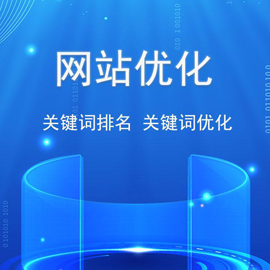如何使用Android實(shí)現(xiàn)短信、微信、微博分享功能
這篇文章主要介紹了如何使用Android實(shí)現(xiàn)短信、微信、微博分享功能,具有一定借鑒價(jià)值,感興趣的朋友可以參考下,希望大家閱讀完這篇文章之后大有收獲,下面讓小編帶著大家一起了解一下。

電白網(wǎng)站建設(shè)公司創(chuàng)新互聯(lián),電白網(wǎng)站設(shè)計(jì)制作,有大型網(wǎng)站制作公司豐富經(jīng)驗(yàn)。已為電白千余家提供企業(yè)網(wǎng)站建設(shè)服務(wù)。企業(yè)網(wǎng)站搭建\成都外貿(mào)網(wǎng)站制作要多少錢,請找那個售后服務(wù)好的電白做網(wǎng)站的公司定做!
在糾結(jié)了幾天的圖表功能之后,我開始開發(fā)一個新的功能。即分享內(nèi)容到短信、微信、微博等渠道,對應(yīng)的我有一個簡單的 Task:
在 Toolbar 寫分享的按鈕
繪制一個 Android 的分享頁面
編寫短信分享示例
編寫社交分享
在這一天,我只完成了前面的三部分。
Toolbar 上的分享按鈕
在 Toolbar 主要還是靠 ImageView 來繪制右上角的分享按鈕:
<?xml version="1.0" encoding="utf-8"?> <android.support.v7.widget.Toolbar xmlns:android="http://schemas.android.com/apk/res/android" xmlns:toolbar="http://schemas.android.com/apk/res-auto" xmlns:tools="http://schemas.android.com/tools" android:id="@+id/toolbar" android:layout_width="match_parent" android:layout_height="?attr/actionBarSize" android:background="?attr/colorPrimaryDark" android:gravity="center"> <TextView android:id="@+id/toolbar_title" android:layout_width="wrap_content" android:layout_height="wrap_content" android:layout_gravity="center" android:text="xxx" /> <ImageView android:visibility="invisible" android:id="@+id/share" android:layout_width="wrap_content" android:layout_height="wrap_content" android:paddingEnd="@dimen/length_24" android:paddingStart="@dimen/length_16" android:paddingTop="@dimen/length_16" android:paddingBottom="@dimen/length_16" android:layout_gravity="right" android:src="@drawable/share_icon" tools:ignore="RtlHardcoded" /> </android.support.v7.widget.Toolbar>
然后在加載到數(shù)據(jù)的時候,將這個元素變?yōu)榭梢姡?/p>
share.setVisibility(View.VISIBLE);
短信分享示例
在實(shí)現(xiàn) UI 之前,我先寫了一個簡單的分享功能:
@OnClick(R.id.share)
void shareAction() {
BaseShare smsShare = ShareFactory.create("SMS");
String text = information.getTitle() + ":" + information.getTitle();
smsShare.share(this, text);
}隨后將其重構(gòu)為簡單的工廠模式:
public static BaseShare getShareType(String type) {
switch (type) {
case "SMS":
return new SMSShare();
case "WEIBO":
return new WeiboShare();
case "MOMENTS":
return new MomentsShare();
case "WECHAT":
return new WechatShare();
}
return null;
}對應(yīng)于不同的分享類型,都有不同的類來做相應(yīng)的處理。
使用 Dialog 繪制底部分享
在最開始的時候,我使用的是 Dialog 來繪制底部的布局:
void showShareDialog() {
Dialog bottomDialog = new Dialog(this, R.style.BottomDialog);
View contentView = LayoutInflater.from(this).inflate(R.layout.bottom_share, null);
bottomDialog.setContentView(contentView);
ViewGroup.LayoutParams layoutParams = contentView.getLayoutParams();
layoutParams.width = getResources().getDisplayMetrics().widthPixels;
contentView.setLayoutParams(layoutParams);
bottomDialog.getWindow().setGravity(Gravity.BOTTOM);
bottomDialog.setCanceledOnTouchOutside(true);
bottomDialog.getWindow().setWindowAnimations(R.style.BottomDialog_Animation);
bottomDialog.show();
}然后簡單地了解了一下動畫效果:
<style name="BottomDialog"> <item name="android:windowNoTitle">true</item> <item name="android:windowBackground">@android:color/transparent</item> </style> <style name="BottomDialog.Animation" parent="Animation.AppCompat.Dialog"> <item name="android:windowEnterAnimation">@anim/translate_dialog_in</item> <item name="android:windowExitAnimation">@anim/translate_dialog_out</item> </style>
對應(yīng)的動畫文件:
translate_dialog_in:
<?xml version="1.0" encoding="utf-8"?> <translate xmlns:android="http://schemas.android.com/apk/res/android" android:duration="300" android:fromXDelta="0" android:fromYDelta="100%" android:toXDelta="0" android:toYDelta="0"> </translate>
translate_dialog_out:
<?xml version="1.0" encoding="utf-8"?> <translate xmlns:android="http://schemas.android.com/apk/res/android" android:duration="300" android:fromXDelta="0" android:fromYDelta="0" android:toXDelta="0" android:toYDelta="100%"> </translate>
但是繪制的時候,出現(xiàn)了一些問題,即 Dialog 在最上面,隨后改用 BottomSheetDialog 來繪制。
使用 BottomSheetDialog 繪制分享菜單
對應(yīng)的邏輯變得更加簡單了。
void showShareDialog() {
final BottomSheetDialog bottomSheetDialog = new BottomSheetDialog(DetailActivity.this);
View dialogView = LayoutInflater.from(InformationDetailActivity.this).inflate(R.layout.bottom_share, null);
dialogView.findViewById(R.id.cancel_share).setOnClickListener(view -> {
bottomSheetDialog.dismiss();
});
bottomSheetDialog.setContentView(dialogView);
bottomSheetDialog.show();
}感謝你能夠認(rèn)真閱讀完這篇文章,希望小編分享的“如何使用Android實(shí)現(xiàn)短信、微信、微博分享功能”這篇文章對大家有幫助,同時也希望大家多多支持創(chuàng)新互聯(lián),關(guān)注創(chuàng)新互聯(lián)行業(yè)資訊頻道,更多相關(guān)知識等著你來學(xué)習(xí)!
網(wǎng)頁題目:如何使用Android實(shí)現(xiàn)短信、微信、微博分享功能
標(biāo)題路徑:http://m.newbst.com/article48/ijsiep.html
成都網(wǎng)站建設(shè)公司_創(chuàng)新互聯(lián),為您提供網(wǎng)頁設(shè)計(jì)公司、品牌網(wǎng)站制作、品牌網(wǎng)站設(shè)計(jì)、網(wǎng)站導(dǎo)航、品牌網(wǎng)站建設(shè)、ChatGPT
聲明:本網(wǎng)站發(fā)布的內(nèi)容(圖片、視頻和文字)以用戶投稿、用戶轉(zhuǎn)載內(nèi)容為主,如果涉及侵權(quán)請盡快告知,我們將會在第一時間刪除。文章觀點(diǎn)不代表本網(wǎng)站立場,如需處理請聯(lián)系客服。電話:028-86922220;郵箱:631063699@qq.com。內(nèi)容未經(jīng)允許不得轉(zhuǎn)載,或轉(zhuǎn)載時需注明來源: 創(chuàng)新互聯(lián)

- 網(wǎng)站改版的優(yōu)化中需要高質(zhì)量的文章及友情鏈接 2022-04-28
- 網(wǎng)站改版網(wǎng)站是否應(yīng)該更換主機(jī)? 2018-09-25
- 什么是網(wǎng)站改版呢? 2021-06-29
- 網(wǎng)站改版后排名一向掉該怎么辦 2021-11-18
- 你了解自己的網(wǎng)站嗎 網(wǎng)站改版的幾點(diǎn)要素 2021-05-11
- 網(wǎng)站改版網(wǎng)站的版面怎樣更改? 2018-09-25
- 從SE0的角度談網(wǎng)站改版 2015-06-08
- 你了解自己的網(wǎng)站嗎 網(wǎng)站改版要改哪些 2021-04-18
- 網(wǎng)站改版你需要做的八件事 2016-12-30
- 淺談成都市雄獅景觀科技網(wǎng)站改版的見解 2023-02-18
- 降低網(wǎng)站跳出率從網(wǎng)站改版開始 2022-09-19
- 建站、網(wǎng)站改版、制作網(wǎng)站是否專業(yè),看這幾點(diǎn)足夠了! 2020-11-27